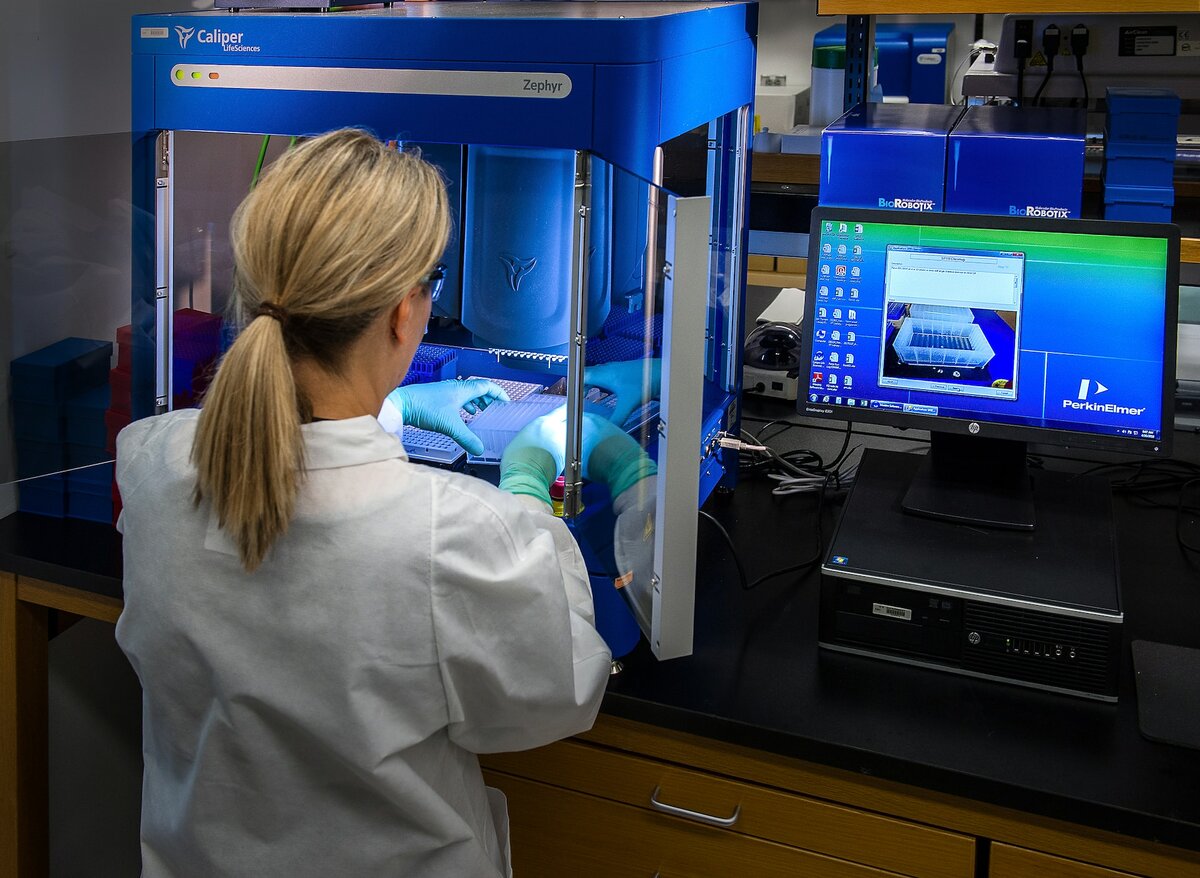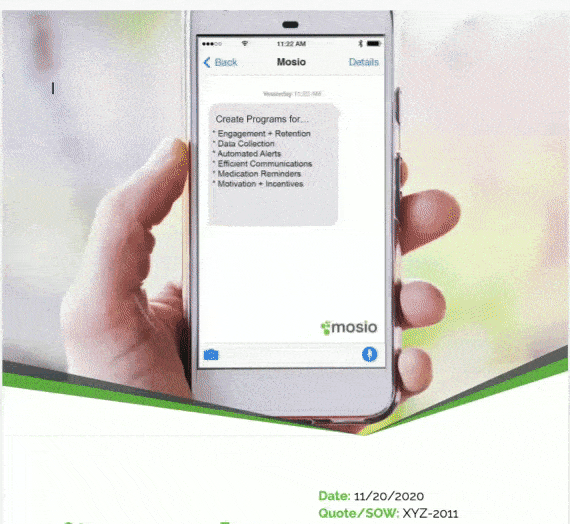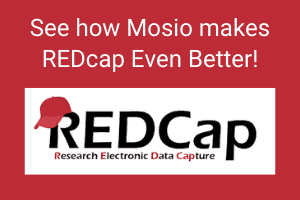The implementation of clinical trial data collection software has been somewhat behind the curve when compared with other industries.
- Struggling to find the right software for clinical trial data collection?
- Feeling overwhelmed by the vast array of options available?
- Concerned about the accuracy and reliability of the data collected?
- Worried about the time and resources it takes to learn and implement new software?
In this article, we’re going to look at what software solutions for clinical trials mean, how they can be used, and point you to ten of the most popular current options spanning the diverse needs of modern trials.
This article is for:
- Researchers looking to streamline their data collection process.
- Clinical trial coordinators seeking efficient and reliable software solutions.
- Pharmaceutical companies aiming to enhance the accuracy and efficiency of their research.
- Academic institutions conducting cutting-edge medical studies.
Clinical Trials Software: What Research Teams Need To Know
Overview of Clinical Trial Software
Software for clinical trials comes in many forms. It can be tailored to a specific task or it can be comprehensive in its applications across the entire process. Essentially, it’s one or more pieces of software used by CROs, biotech, and pharma companies to aid in the design, running, and reporting of trials at any stage of the trial lifecycle.
Clinical Research Software Design & Benefits
Clinical trial software should be designed to facilitate more effective ways of conducting research, offering improvements to the amount of data collected, stored, and analyzed, as well as consolidating multiple tasks and automating areas of the trial that take up resources.
Clinical Trial Management Software Implementation
The major goals of trial software of any kind revolve around getting higher-quality products to market faster, and this has led to its implementation across multiple fields, especially in more complex studies or by companies running multiple concurrent trials.
The pharmaceutical industry has been relatively slow in adopting more modern technologies into clinical trials, and this comes from a level of unfamiliarity with the tech, as well as a hesitance to accept the necessary overheads to get started.
However, as trials get more numerous and complicated, simple spreadsheets and fax communication are simply not cutting it, and are necessarily giving way to more intelligent software solutions that work faster and more accurately than ever before.
As more pioneering sponsors pave the way for widespread adoption, the more it becomes apparent that in order to stay competitive, trials must learn to lean into the technological options available and make the transition to an improved set of tools to streamline the entire process.
Key Clinical Outcomes
Software in clinical trials boasts significant advantages to several key clinical outcomes. They’re typically lower-risk, faster, more compliant, and ultimately produce safer interventions in less time.
Embracing Clinical Trial Data Collection Software
But how are they used and what do they hold in store for the future? The potential of a more technological approach to clinical research has not nearly been reached, but to get a feel for where things are and where they’re headed, let’s take a look at some of the common applications for current clinical research software.
Clinical Trials Software Common Uses
Electronic Data Capture, or EDC, is one of the most popular and widespread uses of software in clinical research. In its simplest form, every EDC has a graphical interface, a query management module, and a reporting tool. This can be expanded as needed to handle any level of complexity in modern trials and has more or less replaced the clinical data management systems of the past.
An EDC is a tool that records and collects documents from trials in electronic forms. There are numerous relevant templates available and while trials mainly use them to collect CRFs, they can be extended to handle data from any number of third-party apps and devices, as well as electronic health records and Electronic Patient-Reported Outcomes (ePRO) surveys.
ePRO itself is another example of useful software that’s widely adopted in clinical trials. In fact, ePRO data makes up the majority of information collected in modern EDCs.
These questionnaires can be filled out and submitted from the patient’s own device; significantly faster with modern software than they traditionally were with pen and paper, and the relevant patient reference material can be kept up-to-date without having to hunt down and remove outdated documents or go through laborious change control.
Comprehensive management systems are becoming more and more automated and organized with clinical trial software, too. From supply management to centralized trial management systems, everything from randomization to inventory management, to progress tracking can be handled with one piece of software, or with a series of integrated components.
Finally, some of the simpler forms of trial software can be the most powerful. Communications tools and project management software can be elegant solutions to streamlining the sharing of information between relevant stakeholders in a fast and secure way.
With all these applications, there is going to be a range of software solutions that can help streamline various processes in any clinical trial. With that in mind, we’ve put together a list of handy products that promise to do just that.
10 Clinical Trial Data Collection Software Solutions
There are several ways to approach the implementation of more software in clinical trials. Depending on the scale, complexity, and the number of trials being managed, there are different solutions available, and when selecting from them, it’s important to make sure that it has the right features, and the flexibility needed to limit redundancies too.
Individual trial needs will vary, too, and a single solution may not be suitable for subsequent trials. This makes the choice of software dependent on a number of factors, including the longevity of the solution itself when applied to ongoing or repeat trials.
Whether you’re looking for individual components that can be quickly implemented with minimal training and fuss, or something more comprehensive and powerful, there should be something on this list that sparks your attention.
Let’s explore 10 clinical trial management system examples.
1 – Mosio
Mosio is a text message service that promises to save time and promote engagement with an automated solution to many of the time-consuming communication tasks in clinical research.
As patients most commonly list text messages at the top of the choices of preferred communication methods, Mosio offers the chance to reach people where they want to be reached, and to do so in a way that takes advantage of the fast and accurate nature of trial tech; saving considerable time for staff to work on other tasks.
Mosio allows for faster enrollment, using a “set it and forget it” system that, once configured, can result in the enrollment of participants in under 15 seconds. This system also works for data collection, reminders, or sending text-based interventions.
Automation of messaging can significantly reduce the number of hours spent on these communication tasks, potentially saving hundreds of thousands of individual tasks throughout the length of the trial.
Follow-up is another strength of this service, as another task that can be automated to respond to patient behavior. Key benefits of this software include:
- More access to resources – Automation makes less work for staff
- Better engagement – Participants can use their own preferred devices
- Direct data collection – Automatic inputs mean no human error in data entry
- No more chasing – Automated follow-up means you experience less drop-out
This is a great choice for an easily implementable solution to one of the major bottlenecks in trial execution and planning.
2 – encapsia
Encapsia is a cloud-based solution to data management. It’s designed for organizations of all sizes and promises an end-to-end solution to data visualization and analytics. The platform will update charts and graphs automatically as data come in, and its home visit app allows for remote uploading of data straight from a tablet while in the field.
It’s capable of working with multimedia such as photos and videos, it can validate data recordings, and help with the customization of template forms. This is an app that can be used both online and offline, making it great for offsite trials.
Key useful features are:
- Live data visibility
- Easy integrations
- scalable, future-proof solutions
Encapsia promises to help trials manage, explore, visualize and analyze their clinical data more effectively, saving time and money. Again, this is a solution that should be easier to implement than some of the more involved and comprehensive systems, as it focuses on a specific scope.
3 – Medrio
For a more thorough approach, particularly when transitioning to more decentralized trials, Medrio’s platform is designed to cover numerous components of decentralized trials in one place. It can handle EDCs, eConsent forms, ePro data, and DDC and combine them into an accessible interface.
Another feature worth looking into is their optimized RTSM platform, which, like other features, integrates into the Medrio EDC, allowing for a secure and straightforward transfer of randomized patient data into the main interface.
Key features are:
- Flexible configuration
- Automation of shipment approvals
- Logistics notifications
- Powerful EDC applications
The goal of this software is to facilitate transitions from trial design to clinical outcomes in as little time as possible and make all of this happen whether you’re in a traditional, hybrid, or fully virtual environment.
4 – CRIO
CRIO solutions allow you to configure budgets to automate receivables, holdbacks, and screen failure caps. Simple text and call services can recruit patients and schedule or remind them of visits. Regulatory workflows can be streamlined and managed with ease, too.
Features:
- eConsent integration
- Reduce ICF deviations
- Automated communications
- Store, route, and bulk eSign documents
CRIO takes a comprehensive approach to trial software with a popular set of apps to capture source data, collaborate in real time, and monitor remotely. They emphasize the speed and accessibility of information, accessible by relevant parties without the need for cumbersome paperwork.
5 – actiTIME
actiTIME is a timesheet app that works well for streamlining trial management. It tracks time automatically and integrates with numerous other apps and platforms and is designed to help meet deadlines. This is another individual component to handle a portion of the workload, freeing up time to focus elsewhere.
This app allows for finer analysis of workable hours data and can help make more informed data-driven decisions. It also allows you to justify the cost of your work to your clients b providing accountability for work accomplished.
Features include:
- Tracking time anywhere
- Improved work transparency
- Facilitates management of time spent
- Builds trust across teams
You can configure this product to make it fit our unique workflow factoring in regional legislation and company policies. It has a wealth of features that can be toggled on and off as needed, so while you may not need everything all at once, it’ll be there for when you do.
6 – Ripple
Ripple is another CTMS, this time boasting a unique analytics module that gives you a comprehensive overview of each participant.
This module track both front and back-end metrics, from recruitment KPIs to the entire patient funnel including screening and enrollment. This platform has easy-to-use visualization tools and a project dashboard covering who’s responsible for what.
Some of the key features are:
- Trial enrollment monitoring and management
- Easy collaboration
- Performance insights on the intuitive dashboard
- Management of compliance
Ripple allows you to delegate recruiting assignments with ease, and to update in real time as your study’s data fields change. One of the more generalist solutions, Ripple can handle a lot of the inner workings of trials, but will of course come with a steeper learning curve.
7 – Dot Compliance
If you’re looking for a way to streamline your compliance documentation, Dot Compiance offers three options, combining QMA with clinical trial management. QMS Xpress comes pre-configured, and ready to go out-of-the-box, and will come in useful for those who are moving toward a more digitized compliance process.
Compliance Xapand is the second option and one that offers additional compliance tools to growing organizations in the process of scaling up. This is a good choice as an upgrade to the Xpress solution and is designed to facilitate the scaling of the compliance process.
Finally, Enterprise Xact gives users more control over the customization and flexibility of the process, allowing more experienced clients the chance to configure their compliance processes themselves.
Dot Compliance has different features depending on the solutions, some of them include:
- Document management
- Audit management
- Risk management
- Design Control
This solution offers a relatively linear approach to implementing software solutions for trials, as it allows for the option of starting small and upgrading over time.
8 – Rave RTSM
Rave RTSM is a fully pre-validated solution to trial supply and randomization management. It’s easy to configure and can be altered as needed when things change mid-study without significant downtime or change orders.
This app really shines during study start-up and close-out and provides real-time visibility for your study teams.
Key features include:
- Full support from Medidata to customize the solution
- Support can cover the full build and execution
- Provides extensive reports
- Works hand-in-hand with Rave EDC
Rave RTSM streamlines your operations with the expertise of a team of experienced IRT SME, and since it’s built on Rave EDC, there’s no need for double data entry and all of the potential for human error that comes with that. There’s also the option for live study management support from the team, so ensure things go smoothly after launch.
9 – OpenClinica
OpenClinica is another smart clinical data management and automation tool, with a focus on better automation options, especially when it comes to reporting. It has a drag-and-drop interface to customize the dashboard to your needs and allow you the choice of events to track.
It also has powerful randomization features that let you group participants by traditional variables or make your own.
Key features of this product are:
- User-friendly ePRO forms
- Engage with participants on their own phones
- Track drug kits and inventory
- Rapid, automated reporting
OpenClinica aims to empower data managers, clinical researchers, and study participants by enabling more efficient clinical research. The major strengths of automation are in engagement and speed of tasks. As such, this solution has the potential to save a substantial amount of working hours.
10 – Castor EDC
Castor EDC caters to studies in multiple industries, with a compliant platform to capture, collect, and integrate data from various sources. It offers a clear audit trail, and a secure database lock with appropriate, field-level encryption to keep things secure.
The Dynamic custom dashboard makes it user-friendly, and the range of features is designed to meet the unique standards and requirements of every trial.
Key features of Castor EDC include:
- eConsent tools
- ePRO tools
- DCT modules for hybrid trials
- Advanced eCRF builder
This is another more comprehensive solution that allows you to connect every aspect of your clinical data, confidently approach secure data capture, and has proactive support to make sure everything’s implemented comfortably.
Clinical Trials Software: Closing Thoughts
Clinical trials software is the future of research. Whether we like it or not, it’s well on the way to making more powerful treatments faster, and as such, it’s important to stay on top of the trends in order to remain competitive.
Still, implementing more software for clinical trials doesn’t have to be a matter of all or nothing; it’s possible to make the transition incremental and pick and choose from a range of modules to suit your needs.
Hopefully, this list helps you get a feel for what’s available and how it can be implemented to streamline various workflows in clinical trials.
Clinical Research Management Software: Frequently Asked Questions
What is clinical research software?
Clinical research software streamlines the clinical research process, encompassing data collection, management, and reporting, enhancing efficiency, accuracy, and cost-effectiveness.
What are the benefits of using clinical research software?
Benefits of clinical research software include:
- Increased efficiency by automating tasks.
- Improved data accuracy.
- Reduced costs through streamlined processes.
- Enhanced compliance with regulatory standards.
What are the different types of clinical research software?
Common types of clinical research software are:
- Electronic data capture (EDC) for data collection.
- Clinical trial management system (CTMS) for overall trial management.
- Electronic patient-reported outcomes (ePRO) for direct patient data collection.
- Clinical data management (CDM) for data formatting and analysis.
- Clinical trial analytics for trend analysis.
How do I choose the right clinical research software?
Selecting the right software depends on:
- Size and complexity of your trials.
- Budget constraints.
- Specific feature needs, such as data collection, management, reporting, and analytics.









